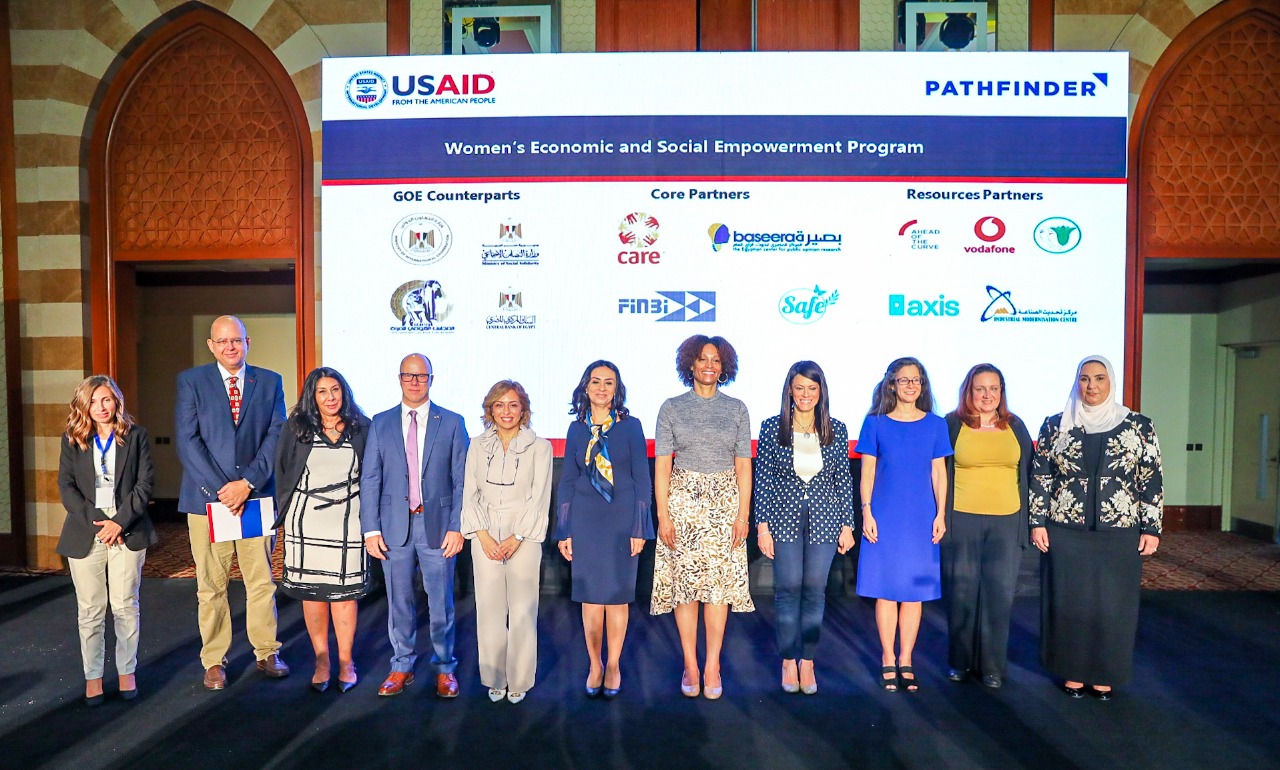
Apple halves its GHG emissions..marks Earth Day with education, action
Apple marks the 2024 Earth Day with offering opportunities for users to educate themselves on ...

Egypt in partnership with the USAID launched the “Women’s Economic and Social Empowerment Program” at a $ 39 million grant.
The program will be implemented from 2022 to 2027 in the governorates of Assiut, El Beheira, Minya, Greater Cairo (Giza), Sohag, and Qena.
The program is launched in partnership with the Ministries of International Cooperation and Social Solidarity, the National Council for Women (NCW), the Central Bank of Egypt (CBE), and various private sector companies and research institutions.
The program aims to increase economic opportunities for women in Egypt by improving work climate, expanding women’s financial inclusion, and reducing the socioeconomic impact of violence against women.
Moreover, the program operates in close partnership with the private sector in a number of high-growth sectors, including those that are traditionally uncommon for women; thus promoting equal employment opportunities and enhancing private sector employment practices, all in line with closing gender gaps.
In her speech, Minister of International Cooperation Rania Mashat said the “Women’s Economic and Social Empowerment Program” comes within the framework of the strategic economic partnership between Egypt and the United States. This is within the “Inclusive Economic Governance” grant agreement that was signed with an aim to improve the investment environment, empower women, and enhance their participation in the labor market in accordance with Egypt’s Vision 2030.
The minister explained that the program is a continuation of the extended partnership between Egypt and the USAID, which for decades has contributed to advancing development efforts through various programs to improve work environments for women in the private sector, enhance financial inclusion, and reduce violence against women, in line with promoting equal opportunities and contributing to the global goals.
Mashat indicated that the political leadership in Egypt believes in the vital role of women in society and in achieving development.
She noted that President Abdel Fattah El Sisi declared 2017 to be the year of women and launched the National Strategy for the Empowerment of Women 2030. This strategy represents an umbrella for all partnerships with development partners regarding programs and agreements to support the economic and social empowerment of women; explaining that the Government of Egypt is working to support and enhance these efforts, paving the way for the effective participation of women across all aspects of development.
She noted that in light of the government’s commitment to transition to a green economy, women’s role is prominent in this regard. Hence, the country encourages entrepreneurship and investment in emerging companies and startups, also addressing the challenges that prevent women entrepreneurs from being empowered, as well as developing their businesses, and creating an enabling environment for innovative solutions.
Mashat added that empowering women constitutes a primary goal that the Ministry of International Cooperation is working to achieve with multilateral and bilateral development partners. In that light, the Ministry of International Cooperation, the World Economic Forum (WEF), the National Council for Women (NCW), along with the private sector, launched the “Closing the Gender Gap Accelerator”; making Egypt the first country in Africa, Middle East and North Africa to launch this public – private collaboration model.
The Action Plan lays down four key objectives: to close gender gaps in remuneration, advance more women into management and leadership positions, increase women’s participation in the labor force, and hardwire gender parity in the future of work post the COVID-19 pandemic.
The minister stressed the importance of the private sector engagement in empowering women, and in achieving comprehensive and sustainable growth. Mashat added that international studies show that increasing the rate of women’s participation in the labor market is reflected in the productivity of the economy, as reducing the gender wage gap to 13% is reflected in an increase of $6 trillion in GDP in OECD countries.
To that end, the Ministry of International Cooperation aims, through new strategies with multilateral and bilateral development partners, to prioritize women’s empowerment as a major pillar, reflected in the 2030 Agenda.
Apple marks the 2024 Earth Day with offering opportunities for users to educate themselves on ...
LG has decided to mark the 2024 Earth Day with a 3D anamorphic digital out-of-home ...
International Cooperation Minister Rania Mashat said Egypt plans to increase the percentage of green projects ...


اترك تعليقا